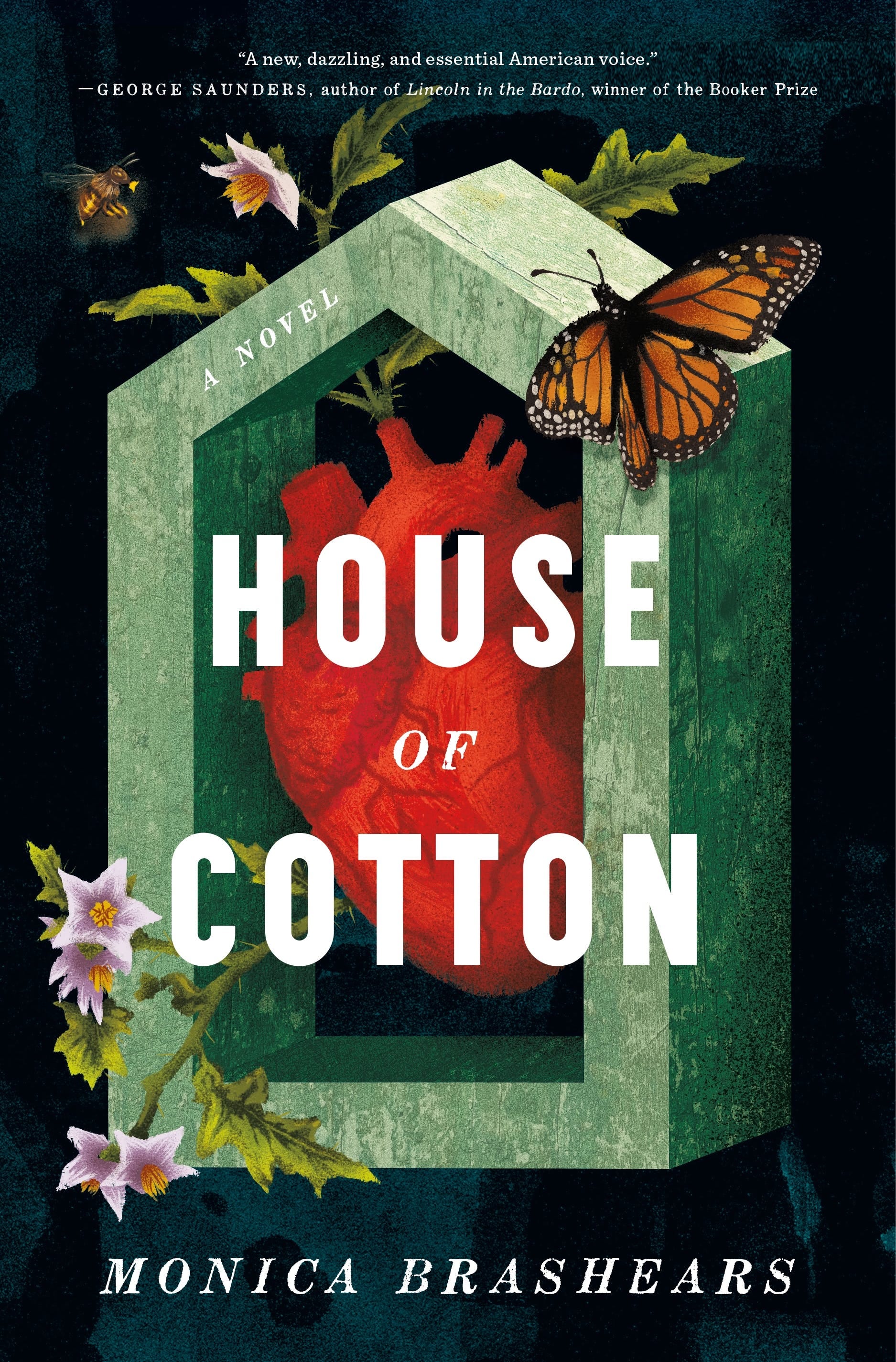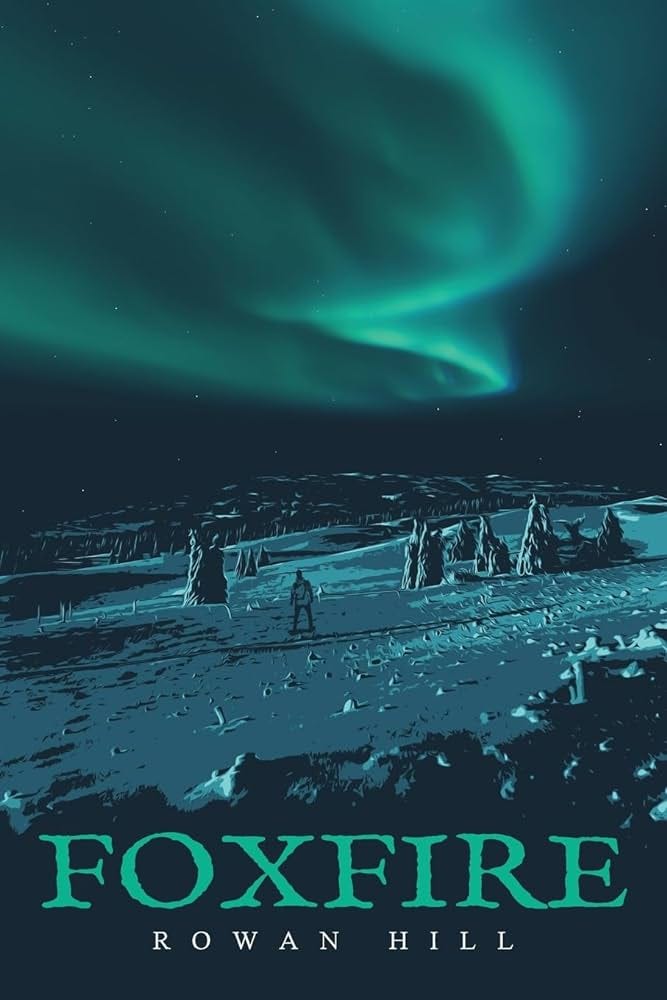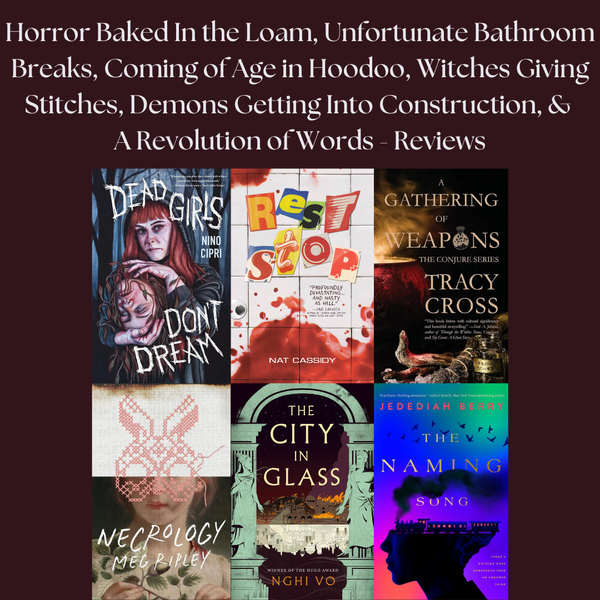Speculative Spectacular: Two Authors Weaving Razor Sharp Critique Within Genre, feat. Monica Brashears & Rowan Hill
Let's get WEIRD.

It shouldn’t come as a surprise that I get really excited about books. My partners find it endearing. I sometimes worry for my sanity.
Today’s piece observes two releases from this year that I was eagerly looking forward to reading: Monica Brashears’ staggering debut, House of Cotton, and Rowan Hill’s newest release, Foxfire.
House of Cotton pulls from the long tradition of Southern Gothic, a subgenre that has experienced a well-deserved resurgence in the last few years. This is especially true amongst Black authors, who have utilized the mechanic to contend with generational trauma, continued racial injustice, topics of colorism, and much more. Needless to say, there is a rich tapestry of work available, and Brashears adds a delectably ingenious thread to the quilt.
Foxfire engages with Finnish folklore, melding a social thriller the likes of a Knives Out or The Menu with all the gory majesty of your favorite creature features. What Hill builds within these morally awful characters and themes is a thrilling social critique, as well as brilliant warnings of what can happen when we sacrifice land for capital and greed.
Both novels interlace aspects of horror, folklore, and other supernatural or bizarre themes, which often lends itself to a murkier genre definition that we typically refer to as “speculative fiction.”
Ugh, you mean to tell me there’s more genre stuff you want us to memorize?? What the heck is Speculative Fiction??
Oof, if you’re mad at me now, you’re going to be even madder when I tell you what qualifies as spec fic is not black and white…
Speculative fiction typically refers to books that push the boundary of genre, never quite fitting one mold. Typically, these stories will feature some form of extraordinary element, making it the perfect avenue to blend “literary” with horror, fantasy, and science fiction.
The moniker also refers to narratives that sometimes feel “prophetic” in nature, such as the powerful works of Octavia E. Butler. Many of her most terrifying stories are simply logical futures from her understanding of race, class, capitalism, and more. Hence the reason why Parable of the Sower’s 2024 setting is pretty nearly identical to the states of fascism and class violence that many face in 2023 America. This doesn’t make her a prophet, rather, it displays how potentially avoidable many of the economic and social disasters of the past three decades could have been.
Conversationally, UK spec fic author Rivers Solomon has continued much of Butler’s legacy with their engaging works approaching science fiction (An Unkindness of Ghosts), fantasy (The Deep), and body horror (Sorrowland). Sorrowland is an excellent example when discussing House of Cotton, as the former’s horror elements are supplemental to the overall themes of religious trauma, motherhood, and scientific experimentation upon human bodies, flow in current with similar themes/supernatural occurrences in the latter. With that, let’s dig in to Brashears’ book!
House of Cotton and why you need to read it

Perhaps my favorite aspect of my listen-through of House of Cotton is that it is far more than it appears to be on the tin. A cursory read of the synopsis brought to mind a favorite of mine from last year, Bethany C. Morrow’s Cherish Farrah, which has its own form of social critique. However, what’s absolutely gorgeous about House of Cotton is how its bent toward horror comes more from the events Magnolia experiences while working for the Cottons than it does from her ability to see her grandmother’s (Mama Brown) spirit.
A majority of this book follows Magnolia’s need to escape the economic violence perpetrated by her grandmother’s landlord, Sugarfoot, thus accepting a “modeling” gig with Cotton and his cosmetically shapeshifting aunt, Eden.
It’s once we learn that said “modeling” involves Magnolia completely transforming her appearance to look like people’s lost loved ones, as a way for them to get another goodbye, that the unnerving undercurrent of the novel begins its slow growth in intensity. Despite the odd requests of the family, Magnolia feels she must endure so that she can save up money and escape Sugarfoot’s harmful advances.
From here we tentatively follow Magnolia through a bizarre world of southern magic, white supremacy, and what it could mean if we had the option of paying someone to act as our lost loved ones.
If you had the option to speak with someone you’ve loved one last time, would you?
Where things get even muddier is the way her new employers themselves use and commodify Magnolia. Cotton’s introduction involves him coming into the gas station where Magnolia works, his hands covered in what we later learn is fake blood. He makes comments about her resemblance to Josephine Baker, showering her in compliments before retreating from the store. The more we learn of him, the more it appears he was seeking someone like Magnolia out, making his offer to her upon that first meeting.
They both use and mold Magnolia in any way they see fit, whether it’s Eden using her unreal makeup skills to transform Magnolia into anyone they need her to be, while also avoiding a case that was sent in from a Black family, while Cotton uses her for his emotional and intimate desires and needs. Meanwhile, Mama Brown keeps appearing to Magnolia to try and get her away from these people, as well as the white supremacy proxy of this book, a preacher named Cricket who is hunting Mama Brown, effectively mirroring the Cotton’s treatment of her.
There are so many layers and profound moments of both clarity and sheer surreal insanity in this book. You could likely write an entire academic essay on the sheer subtextual images and lessons inside. Even in its darkest moments, there is a shining hope throughout.
Foxfire and the art of telling a murder mystery and an eco-horror at the same darn time

Rowan Hill is an author I’ve come to know through my becoming friends with some members of the horror community online. Foxfire is her newest novel and the hype from other authors was massive. A mystery set against the backdrop of a folk horror, with the pace of a thriller that resolves into existential…peace? Yeah, we’ll call it peace.
When we meet the cast of Foxfire, we can already perceive that morality is fairly dubious. Hill lets us into the heads of each character through the chapters, slowly unraveling the central human mystery, before blowing the gosh darn barn doors off with its twist.
A family fallen on hard times is looking to sell the ancestral land as a resort where folks can come and witness the aurora borealis in isolated glass domes. While the father decries his own father’s folkloric beliefs, it becomes evident that something is happening as each of the guests experience gruesome deaths, seemingly at random.
The novel starts off with a darkly satirical tone, almost matching the seeming ease with which our wealthy central characters exude as they keep up appearances to placate a desperate man’s attempts at income. It is once these delicate threads of story unravel that the darkness takes hold, reading like a straightforward thriller rather than a social satire.
It’s a sleight of hand that—when used correctly—pays off extremely well. Rowan Hill achieves this with flying colors. Despite it’s brevity at under 200 pages, Foxfire packs a hell of a lot of story and Finnish folklore into its story, providing a delirious commentary on climate crisis and capitalism alike.
So then what about these books makes them Speculative Fiction??
Well, as any good spec fic will, both novels imagine an alternate past/future than our own. The supernatural work as a means of warning from our undoing, while also helping characters to perhaps connect to aspects of themselves that they are ultimately ignoring.
Both books take aim at power structures that effect just about every community in one way or another. Whether it’s class difference, white supremacy, or even loss of ancestral land, the strange assists our understanding of how many of the marginalized are forced to move through these structures, which ultimately feel like experiencing horrors.
It begs us to ask ourselves: what would happen if you had the chance to rise from poverty by assisting in a macabre form of grief therapy? What would happen if the land fought back? Do these opportunities and systems ultimately help or harm us? That, my friends, is the beauty of Speculative Fiction.
In a world so focused on black and white thinking, these subgenres offer us another way of looking at the complexities of our lives, whether for good or ill.
House of Cotton and Foxfire are both currently in stores. We have both at Lahaska Bookshop in Peddler’s Village, so you could certainly come visit us…
Thank you, as always, for reading. Be sure to stay tuned, for there are some other fun reviews/pieces on the horizon. Stay safe, lovelies.




